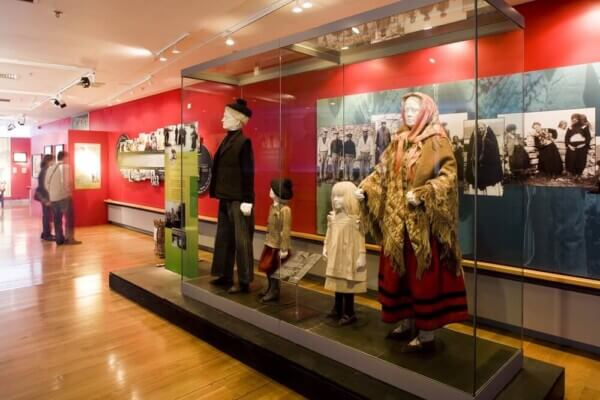If you’re planning to visit Ireland, you may be wondering how you might save money while you’re there.
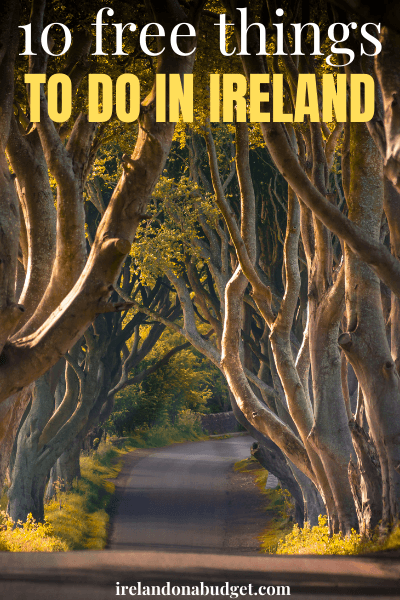 This post contains affiliate links, and I may earn compensation when you click on the links at no additional cost to you.
This post contains affiliate links, and I may earn compensation when you click on the links at no additional cost to you.
While there are many tips on this website to help do just that, here are 10 things to do in Ireland that involve no money at all.
Read on to find out more.
Bective Abbey
Bective Abbey was founded in 1147 as a “daughter house” of Old Mellifont Abbey in County Louth.
Bective Abbey, located in Meath, is Ireland’s second Cistercian abbey.

From the 13th to 15th centuries, it was an important monastic settlement, and today you can see the remains of that in its well-preserved church, chapter house, and cloister, great examples of Cistercian architecture.
Unfortunately, like other abbeys across Ireland during the early 16th century, Bective Abbey and its surrounding estate were confiscated by the British following a decree from King Henry VIII called the Dissolution of the Monasteries.
When Henry became head of the Church of England, he disbanded monasteries, priories, convents, and friaries throughout England, Wales, and Ireland.
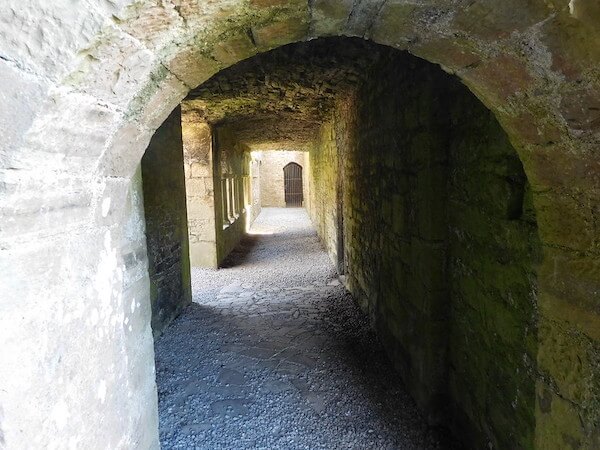
The abbey is now considered one of Ireland’s National Monuments.
A maze of passageways with dead ends and interrupted staircases makes Bective Abbey a fascinating place to explore.
Bective Abbey has also been a popular location for filmmakers.
In 1955, it was one of the locations in the movie “Captain Lightfoot” starring Rock Hudson. In 1995, it was used as a location for “Braveheart” starring Mel Gibson, and in 2021, scenes from the movie “The Last Duel” were filmed there.
Chester Beatty Library
Named a European Museum of the Year, the Chester Beatty Library located at Dublin Castle is an absolute treasure trove of rich collections of Asian, Middle Eastern, North African, and European antiquities.
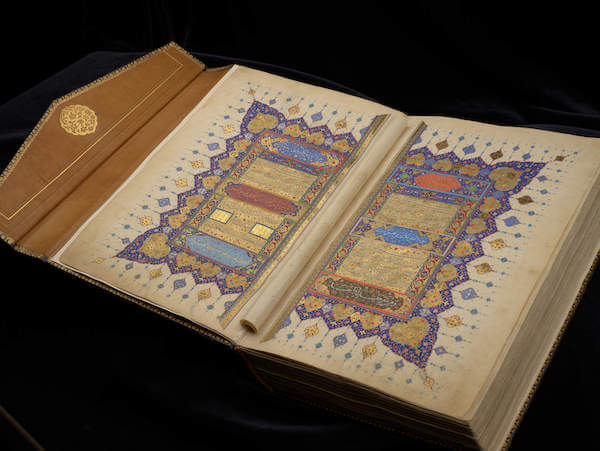
Explore the library’s 20,000 manuscripts, rare books, miniature paintings, clay tablets, costumes, and other important artifacts that once belonged to the collector Sir Alfred Chester Beatty, a New Yorker, who donated it all to the people of Ireland.
Read More: 3 Days in Dublin: Top Sights to See on a Budget
Cavan Burren Park
Among the 10 things to do in Ireland is to explore the beautiful Cavan Burren Park.
The park, located on the Cavan/Fermanagh border, was officially opened in 2014 but this remote area has a long history.
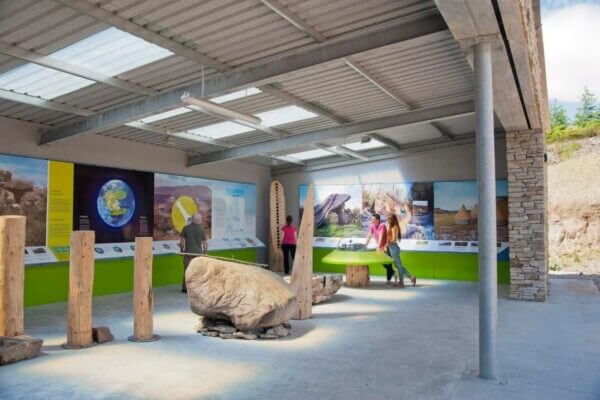
Archaeologists believe that the Cavan Burren is about 340 million years old and was first covered by a shallow tropical sea.
The exact details of its beginning can be found in the park's excellent interpretive center, which includes several exhibits that pertain to important sites in the UNESCO-approved geopark.
Expect to see huge boulders of sandstone that sit on pedestals of limestone created during the last Ice Age some 13,000 years ago.
Evidence of farming communities that settled in the park as early as 4,500 B.C. can also be found in old field walls as well as other monuments like the Giant’s Grave wedge tomb.
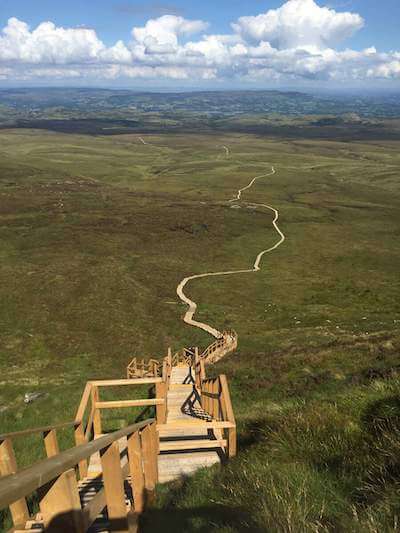
The Cuilcagh Legnabrocky Trail, often referred to as “The Stairway to Heaven,” is a popular trek that you can begin in the Cavan Burren.
The boardwalk leads to the top of Cuilcagh Mountain, the highest point in Counties Cavan and Fermanagh.
The park is open year-round.
Grab your Free Activities to Do in Ireland List
Cork Public Museum
You’ll be impressed by this interesting museum in Cork City that is absolutely free to visit.
The museum, housed in a Georgian building that once belonged to the local Beamish brewing company, recounts Cork’s history through Stone Age artifacts (an Iron Age helmet is one of them as well as some of the oldest tools found in Ireland), in addition to objects from its medieval past.
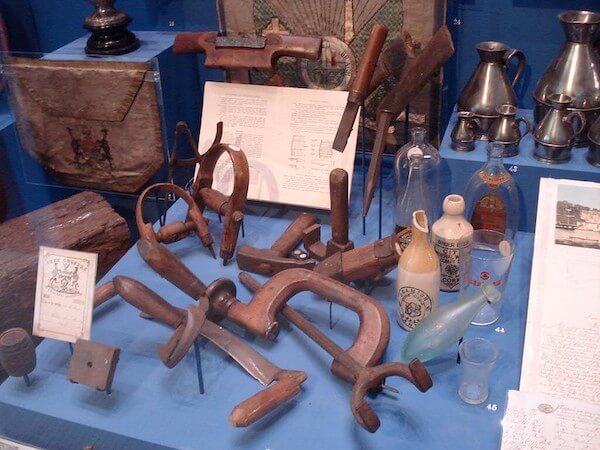
It also highlights the traditional crafts that were made in the city during the 19th and 20th centuries, including silverware and intricate Victorian lace.
If you are interested in the history of Ireland’s independence, this museum has lots of artifacts related to that, including displays on statesman and Cork native Michael Collins, who was involved in Ireland’s fight for independence and was tragically assassinated in 1922.
What may be surprising to some is that Cork was home to a thriving Jewish community.
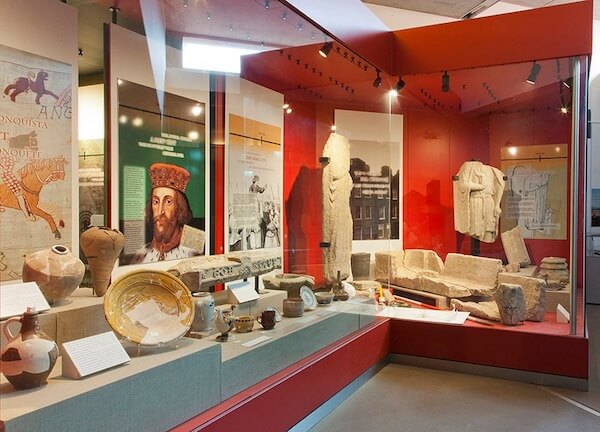
The museum’s Rosenberg Collection includes a fascinating trove of images, documents, and objects related to the Rosenberg and Hayman families and their lives in Cork between the 1930s and the 1960s.
A well-known clothes shop in Cork known as “Fashion Modes” was owned and operated by Jessie Rosenberg nee Hayman.
Glenveagh National Park
This is Ireland’s second-largest national park and among the 10 things to do in Ireland that are worth checking out, especially if you're traveling on a budget.
Located in County Donegal, the park’s crowning jewel is Mount Errigal, the highest mountain in a chain of peaks locally referred to as the “Seven Sisters.”
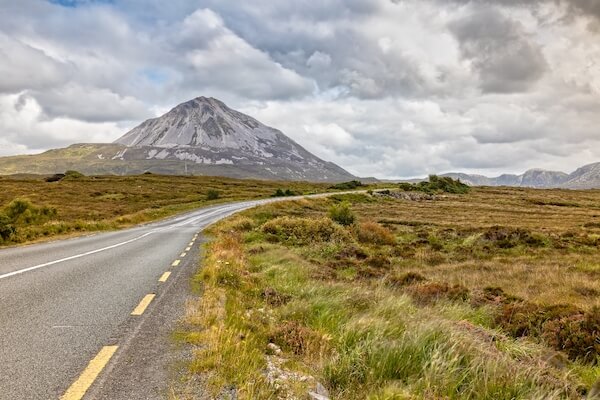
The park also includes Glenveagh Castle, a castellated 19th-century mansion on the shores of Lough Veagh.
Modeled after Balmoral Castle in Scotland, it once served as a summer retreat for John George Adair and his wife, Cornelia.
Adair is infamous for evicting 244 of his own tenants in what later became known as the “Derryveagh Evictions.”

No tours of the house are available, although there is a visitor center that provides lots of information on the history of the mansion.
Dunlewey Church is also located within the vast park.
The ruined Church of Ireland building stands at the center of the Poisoned Glen, a truly beautiful spot that you’ll want to capture for your Instagram feed!
The stunning building was built as a memorial to James Russell, the landlord of the Dunlewey estate.
Hall of the Red Earl
If you find yourself in Galway city, be sure to visit this free attraction.
The remains of the Hall of the Red Earl were discovered during excavations in 1997.
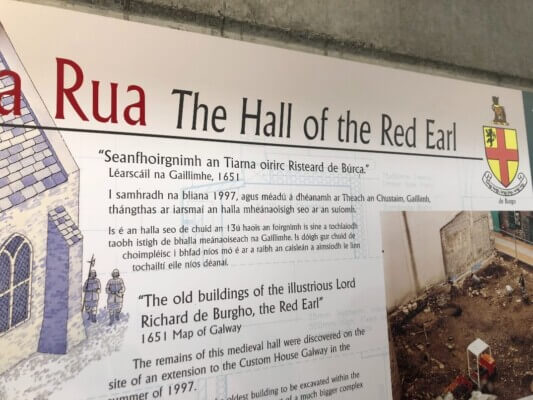
What builders discovered was the remains of Galway’s first municipal building, which was used during the 13th century to collect taxes, dispense justice, and even host banquets.
The hall is named after the powerful Richard Óg de Burgh, the 2nd Earl of Ulster and the 3rd Baron of Connaught, commonly known as the “Red Earl.”
Over 11,000 artifacts were uncovered during the excavation. Some of them are on display at the site.
Lonely Planet listed the Hall of the Red Earl as one of the top attractions in the city. It is open year-round.
Kilkenny Famine Experience/The Famine Memorial Garden
At the Kilkenny Famine Experience, you’ll get a sense of how Ireland's Great Famine impacted the Kilkenny City community and beyond.
The tourist attraction, which is among the 10 things to do in Ireland for free, is based on life at the Kilkenny Union Workhouse, which is integrated into the MacDonagh Junction Shopping Centre.
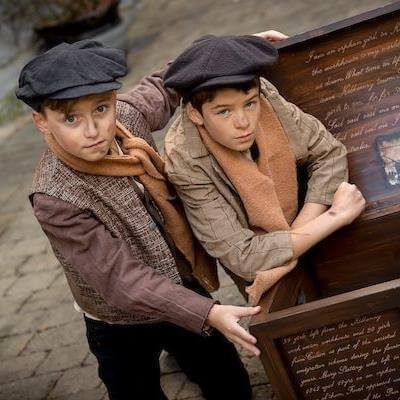
The free AV self-guided tour will take you around the buildings of the workhouse complex, telling the stories of the inmates and how they lived and died.
You’ll als0 learn about the unexpected 2005 discovery of over 970 human remains related to the famine period and the story of the Saul brothers who were abandoned by their parents in Dublin’s dock and who made their way back to the Kilkenny area where they were admitted into the workhouse.
The human remains, mentioned above, were brought to researchers at the National Museum of Ireland, where they were examined in detail, offering a rare look into the conditions that those people lived in.
By clicking on the Amazon link below, I may earn a small commission from the Amazon Associates Program, but only if you decide to buy something on the site. However, you will not incur any additional costs by doing so.
The find was described as the most significant discovery in the world related to the Irish Famine.
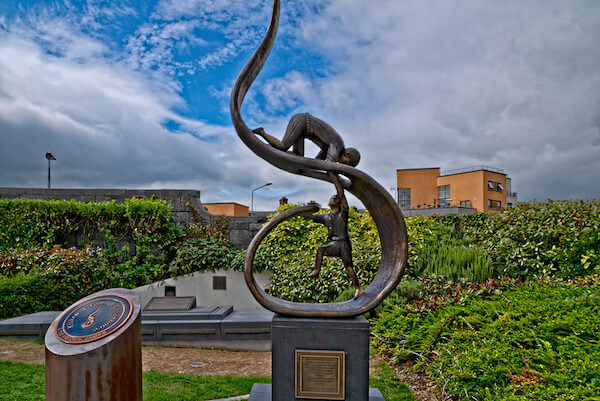
In 2010, the remains were reinterred in the Kilkenny Famine Memorial Garden at MacDonagh Junction, pictured above.
Another interesting fact that has come out of this particular workhouse is that 87 young orphan girls between the ages of 14 and 18 were among the 4,000 shipped to Australia in 1850.
By clicking on the Amazon link below, I may earn a small commission from the Amazon Associates Program, but only if you decide to buy something on the site. However, you will not incur any additional costs by doing so.
Kerry Girls: The Earl Grey Scheme
The girls, like thousands of others from around the island of Ireland, were sent to the other side of the world as part of the Earl Grey scheme, a policy of the British government to correct the gender imbalance in the colonies at the time.
National Museum of Country Life
Located outside Castlebar, Co. Mayo, the National Museum of Country Life is a unique peek into what life was like in Old Ireland.
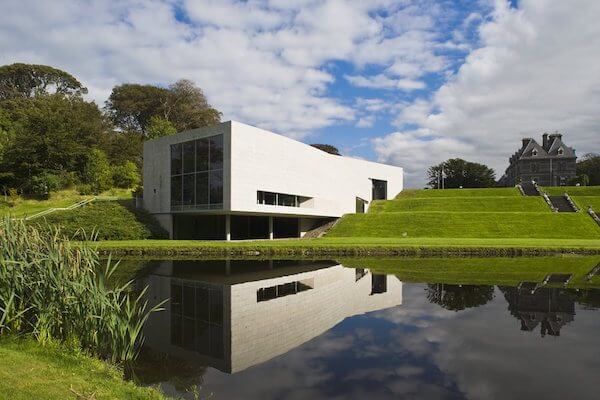
The museum, which is part of the National Museum complex, largely housed in Dublin, contains numerous exhibits that depict a way of life that has disappeared but will still resonate with many.
Some of the exhibits currently on display at the museum include Our Irish Chair: Tradition Revisited, Cycling the Country, The Times: Rural Ireland, 1850 to 1950, among others.
By clicking on the Amazon image below, I may earn a small commission from the Amazon Associates Program, but only if you decide to buy something on the site. However, you will not incur any additional costs by doing so.
Shrine to St. Oliver Plunkett
Walk into St. Peter’s Roman Catholic Church in Drogheda, Co. Louth, and you’ll discover the severed head of Oliver Plunkett, a 17th-century Irish martyr.
The church, in the French Gothic style, houses what is referred to as a National Museum of Country Life to the saint.
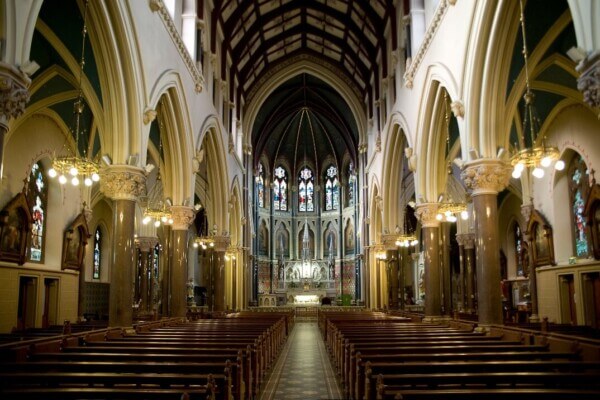
The elaborate display encases the saint’s head, with a nearby showcase displaying his shoulder blade and bones. The exhibition also includes the cell door of Newgate Prison in London where he spent his last days.
Plunkett, who was canonized in 1975, was hung, drawn, and quartered by the British for “promoting the Roman faith.”
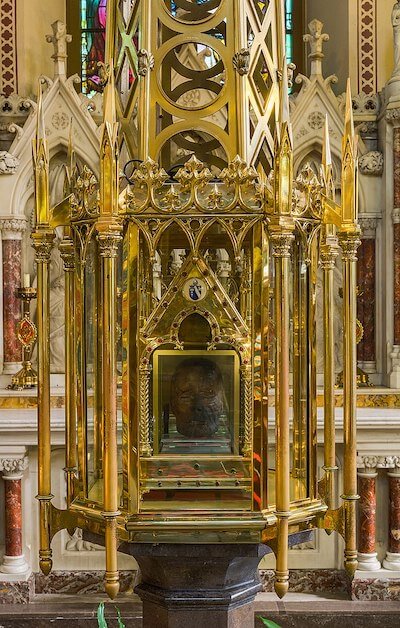
Following the Cromwellian conquest of Ireland during the 1600s, Roman Catholic priests like Plunkett were regularly persecuted and killed.
After his brutal death, Plunkett’s remains were buried in England but were exhumed a few years later.
In 1929, his head was brought back to this beautiful church in Louth.
In 1997, Ireland declared him the country’s patron saint for peace and reconciliation.
The Dark Hedges
This place located in the County Antrim countryside is synonymous with the National Museum of Country Life.
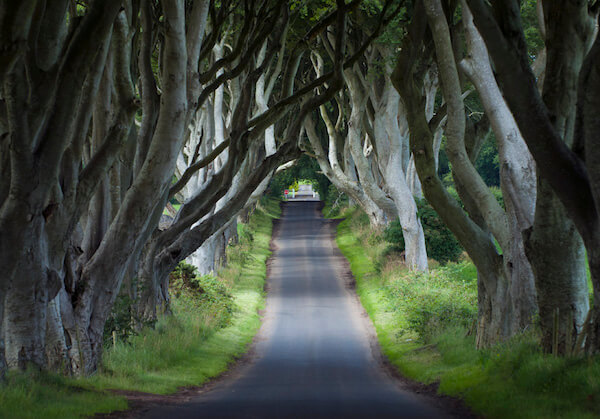
The long pathway that leads to Gracehill House, with its avenue of beech trees planted by the Stuart family in the 18th century, was the location for several scenes in the series.
The pathway was known as “The King’s Road.”
Journey Along the Kingsroad: GoT Ireland with Aer Lingus Vacations
If you’re a fan of the show, visiting this Antrim attraction is a must. It has become one of the most photographed places in Northern Ireland and seeing it won’t cost you a penny.
Have you experienced any of these 10 things to do in Ireland that are free? If so, let me know in the comments below.

